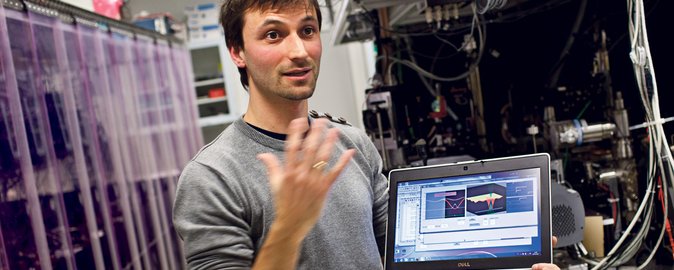Jacob Sherson: Uniquely human? The computer or man as victor in modern challenges?
Jacob Sherson visits Posthuman Aesthetics for a lunch talk on developing quantum technologies.
Info about event
Time
Location
Langelandsgade 139, 8000 Aarhus C, bldg. 1586, room 114
Organizer

Jacob Sherson is an experimental physicist working on developing quantum technologies such as the quantum computer. He is also director of the interdisciplinary AU Ideas Center for Community Driven Research bringing together researcher in physics, chemistry, didactic and cognitive science, psychology, economy, and business administration.
Abstract
Technological development is at the moment accelerating so fast that some scientist claim that within a few decades we will reach a singularity in which the technology will be more intelligent that Man. This development could potentially make the whole human race obsolete. In this talk I will describe our citizen science project, www.scienceathome.org, in which we develop online computer games enabling ordinary users of the internet to help solve actual research challenges. Very recently we have in collaboration with 10,000 amateur researchers (players) demonstrated clearly that humans are clearly superior to modern computer algorithms in solving complex quantum research challenges [1].
The open question is, can we quantify what makes the players superior and in that way use that knowledge to make future computers even more intelligent? Or, will we find an unquantifiable “human core”, which is unique in a way beyond our comprehension? This central question determines the future of the relation between Man and machine and is the key research topic in our interdisciplinary center involving researchers from physics, chemistry, didactic and cognitive science, psychology, economy, and researchers studying human problem solving, creativity, and innovation .
[1] J.J. Sørensen et al, Exploring the Quantum Speed Limit with Computer Games, accepted for Nature.
